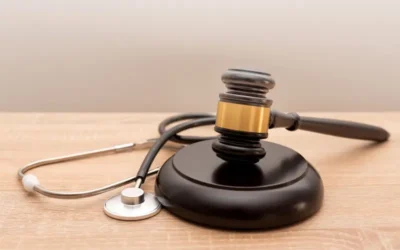In any personal injury case, the large majority of a claimant’s damages constitute medical treatment. This makes medical record review very important for insurance defense counsel to get an accurate picture of the claimant’s medical history, and the alleged injury. The claimant is required to reveal all prior and subsequent medical treatments, but these statements need not always be correct or transparent. They may be ambiguous, inadequate or even false. This makes the process of reviewing the claimant’s medical history rather challenging.
Key Considerations for Medical Record Review
So, here are a few considerations in this regard that could help ease the process and enable insurance defense counsel to obtain an accurate medical history of the claimant.
- Subpoena all the past and present medical records of the claimant: This is an important step to ensure that all relevant medical documentation is available for review. This can be done after the defense counsel obtains a lawful, enforceable HIPAA order. However, the mental health records may not be released on grounds of confidentiality and privacy. In case the claimant makes an emotional or mental injury claim, those prior mental records may be obtainable.
- It is important to obtain primary care records: Typically, claimants first see their primary care doctor to obtain referrals to specialists. Primary care records are important because these will contain the details the claimant has told his/her primary care physician so that they can receive the best medical care possible. In other words, these medical records will contain truthful facts about the claimant’s medical condition, without exaggeration. Another advantage of obtaining the primary care records is that they may contain leads to medical providers the claimant may have seen before the alleged injury that is being litigated. It will help ascertain whether the claimant had some prior degenerative condition before the present injury. An expert medical review team will want to know when the claimant first had the medical condition so as to determine causation and further medical treatment.
- Review the medical billing records: This will provide details regarding Medicare, Medicaid, Tricare and VA, i.e. government funded payers. The diagnoses should support the treatment provided. Again, the billing records need to be reviewed to obtain information regarding the claimant’s medical history. As providers of medical review services for insurance attorneys, we know that this is a necessary step that helps identify additional providers. If there are additional providers, medical records have to be obtained from them as well.
- Medical record review to identify prior complaints to the same injured body part: This is an important consideration for the defense attorney with regard to establishing causation.
Medical Review Services Can Assist Defense Counsel
Some individuals may have long-term medical conditions and an extensive medical history. They may claim that the current injury has worsened their medical condition, leading to inability to work, loss of income, and the need for medical treatment.
- Defense attorneys will find the service of a medical chart review company very helpful because the expert review team can accurately identify the claimant’s healthcare patterns. This valuable information will help attorneys decide on an apt course of action.
- Also, an experienced medical reviewer can easily distinguish acute injuries from long-term preexisting health conditions. The extent of injuries can be clearly explained. Verifiable injuries caused by a particular incident can be differentiated from pre-existing conditions.
- A detailed review of the medical records can also reveal any excessive or medically unnecessary treatment.
Insurance defense attorneys can understand a claimant’s medical history with the help of relevant medical records, both prior and current. As illustrated above, a medical record review company can assist attorneys in reviewing the various medical and billing records. What is most important is that the defense attorney must clearly understand the contents of these records so that he/she can identify past complaints, additional providers and so on, or identify inconsistencies if any, in the claimant’s narrative.




